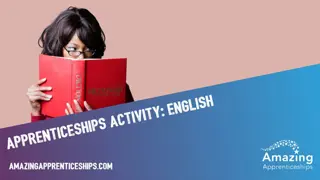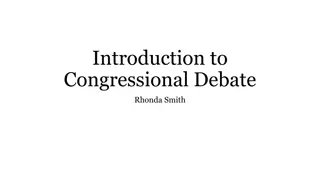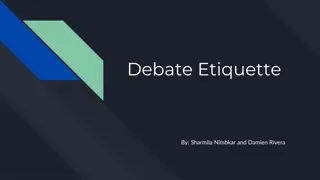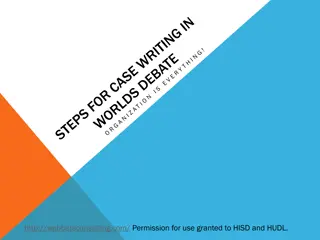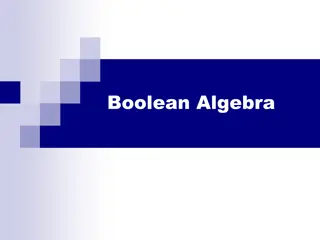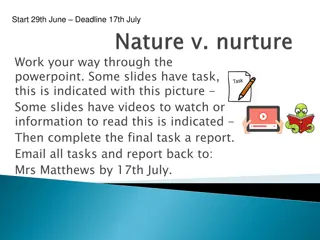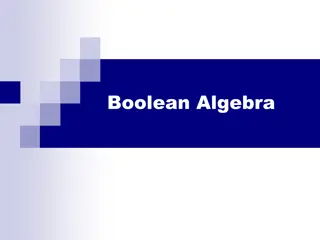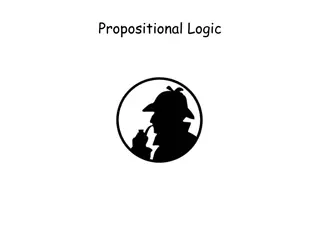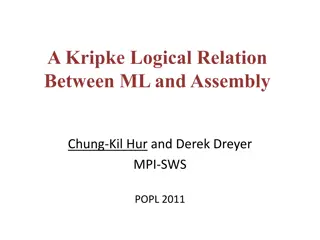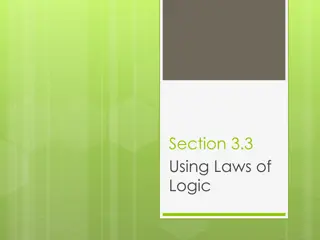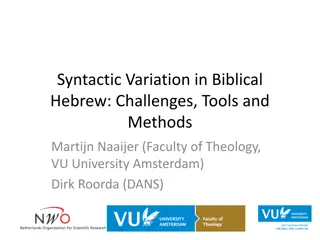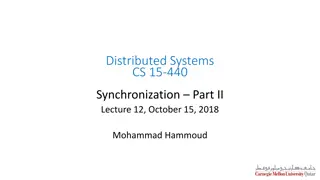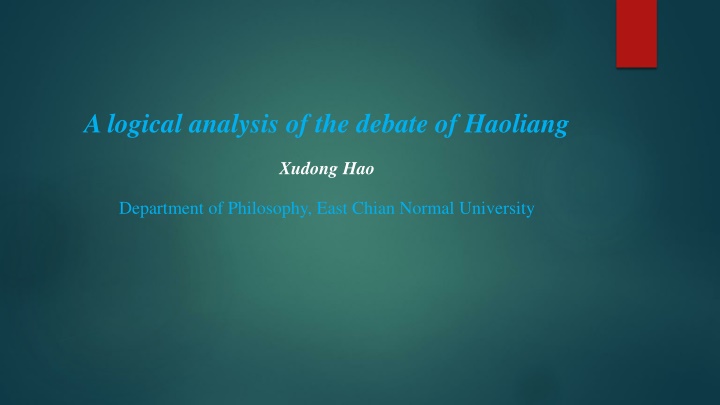
Analyzing the Debate of Haoliang in Zhuangzi's Autumn Floods
Explore a logical analysis of the thought-provoking debate between Zhuangzi and Huizi from Section 17 of Zhuangzi's text, "Autumn Floods." By dissecting the dialogue's propositions and logical inferences, you can delve into the meaning behind the question of how one can truly know the happiness of a fish. Discover the intricate layers of reasoning and perspective in this philosophical debate.
Download Presentation

Please find below an Image/Link to download the presentation.
The content on the website is provided AS IS for your information and personal use only. It may not be sold, licensed, or shared on other websites without obtaining consent from the author. If you encounter any issues during the download, it is possible that the publisher has removed the file from their server.
You are allowed to download the files provided on this website for personal or commercial use, subject to the condition that they are used lawfully. All files are the property of their respective owners.
The content on the website is provided AS IS for your information and personal use only. It may not be sold, licensed, or shared on other websites without obtaining consent from the author.
E N D
Presentation Transcript
A logical analysis of the debate of Haoliang Xudong Hao Department of Philosophy, East Chian Normal University
A logical analysis of the debate of Haoliang (Xudong Hao) 1. What do the sentences of the debate assert? The debate of Haoliang can be found in Section 17 of Zhuangzi, Autumn floods . The full text is as follows. Zhuangzi and Huizi were strolling on the bridge over the Hao River when Zhuangzi said, Out swim the minnows, so free and easy! It means that the fish is happy. Huizi said, You re not the fish; how do you know the fish is happy? Zhuangzi said, You re not me; so, how do you know I don t know the fish is happy? Huizi said, I m not you, so I certainly don t know you know the fish is happy. You re certainly not the fish, so that still proves you don t know the fish is happy! Zhuangzi said, Let us go back to your original question, please. You asked me how I know the fish is happy, so you already knew I knew it when you asked the question. I know it by standing here, beside the Hao River.
A logical analysis of the debate of Haoliang (Xudong Hao) To facilitate the analysis of the logical inferences in this dialogue, it is necessary to clarify what propositions the sentences in the dialogue actually assert . However, there are two questioning sentences in the dialogue: [a] Huizi: You re not the fish; how do you know the fish is happy? (Q1) [b] Zhuangzi: You re not me, so how do you know I don t know the fish is happy? (Q2) Hansen, C. (2003). The Relatively Happy Fish. Asian Philosophy, 13(2/3). Teng, N. (2006). The Relatively Happy Fish Revisited, Asian Philosophy, 16(1), 39 47. Translation [A] Z[1]: Out swim the minnows, so free and easy! It means that the fish is happy. H[2]: You re not the fish; so, you don t know the fish is happy. Z[3]: You are not me; so, you don t know I know the fish is happy. H[4]: I m not you, so I certainly don t know you know the fish is happy. H[5]: You re certainly not the fish, so that still proves you don t know the fish is happy.
A logical analysis of the debate of Haoliang (Xudong Hao) 2. Logical description of the debate By changing these personal pronouns to the third-person pronouns, we can obtain translation [B] as follows: [Translation B] (let Z stand for Zhuangzi , and H for Huizi ) H[2]: Z is not the fish; so, Z does not know the fish is happy. Z[3]: H is not Z; so, H does not know Z knows the fish is happy. H[4]: H is not Z; so, H does not know Z knows the fish is happy. H[5]: Z is not the fish; so that still proves Z does not know the fish is happy.
A logical analysis of the debate of Haoliang (Xudong Hao) First, let K stands for know and ~K for do not know. Let z stands for Zhuangzi and h for Huizi ; therefore, Kzstands for Zhuangzi knows , Khstands for Huizi knows . Second, H(x) means x is happy , and f stands for the fish ; therefore, H(f) means the fish is happy . Translation [C] H[2]: z is not f; so, ~KzH(f). Z[3]: h is not z; so, ~KhKzH(f). H[4]: h is not z; so, ~KhKzH(f). (A restatement of Z[3].) H[5]: z is not f; so that still proves ~KzH(f).
A logical analysis of the debate of Haoliang (Xudong Hao) 3. Logical analysis of refutation of Zhuangzi In the dialogue, Huizi [2] refutes the view that Zhuangzi knows the fish is happy , and the inference of Huizi [2] relies on the following implicit major premise: If x is not y, then ~KxH(y) [P0] If z is not f, then ~KzH(f) [P1]; z is not f; So, ~KzH(f). Thus, Huizi [2] implemented a refutation of Zhuangzi.
A logical analysis of the debate of Haoliang (Xudong Hao) Z[3]: h is not z; so, ~KhKzH(f). By comparing the minor premise and [P1], the major premise can be got; and let it be [P2]. [P1]: If z is not f, then ~KzH(f). [P2]: If h is not z, then ~K?H(?). Thus, strictly speaking, by means of [P1], Zhuangzi should obtain the following hypothetical proposition as a major premise. If h is not z, then ~KhH(z) [P2]; h is not z; so, ~KhH(z). However, in fact, the inference of Zhuangzi [3] is as follows: Z[3]: If h is not z; so, ~KhKzH(f).


